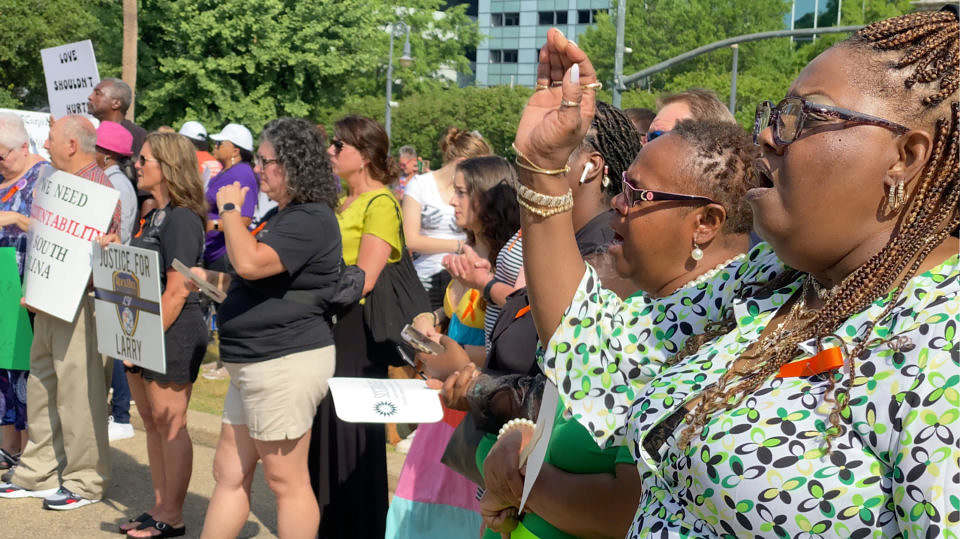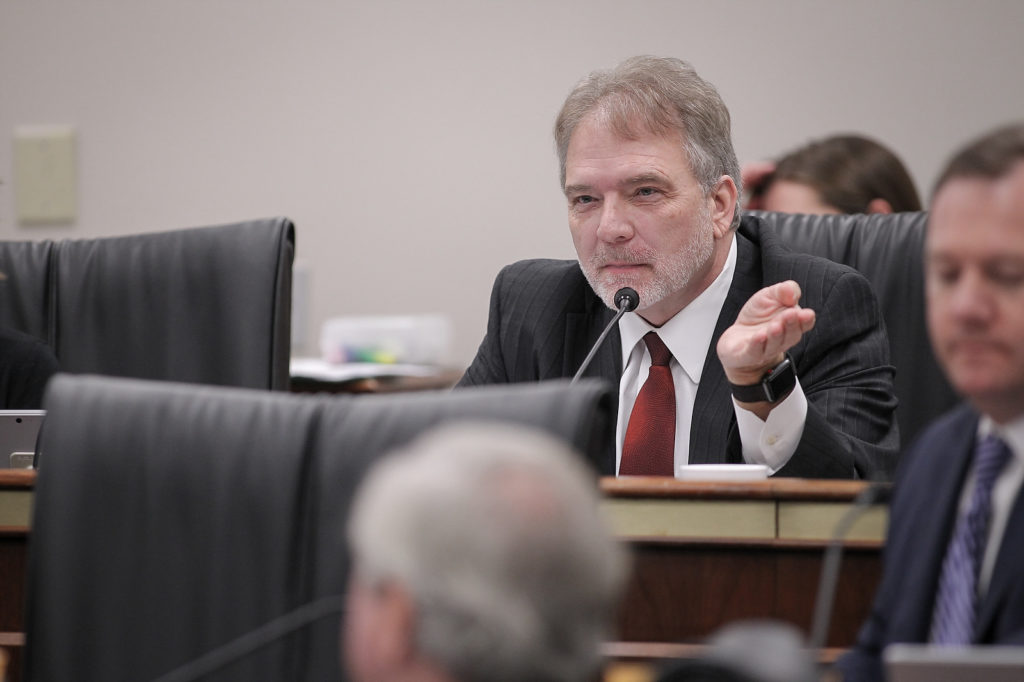|
Getting your Trinity Audio player ready...
|
A year ago, Bowen Turner‘s story awakened many South Carolinians to stark imbalances in the Palmetto State’s ‘injustice’ system. Turner, an accused serial rapist, was charged with his first count of criminal sexual conduct in January 2019 after allegedly raping 16-year-old Dallas Stoller – only to be let out on bond with a GPS monitor.
Half a year after his initial arrest, Turner ended up back in the custody of sheriff’s deputies after allegedly raping 16-year-old Chloe Bess.
Bess gave FITSNews a first hand account of her alleged assault. She recalled stepping outside to take a phone call at a house party, only to be forced to the ground by Turner.
“He’s a lot bigger than me, I only weight 115 pounds,” she said. “I’m really tiny … there was not much I could do at that moment in time.”
“I remember looking at the stars, I could feel what was happening, I was aware what was going on, and I was just petrified, I was frozen, I couldn’t move,” she continued. “I wanted to kick and scream, but I just couldn’t move – I didn’t know what to do.”
Turner, charged with a second count of criminal sexual conduct for allegedly raping Bess, hired S.C. senate minority leader Brad Hutto to represent him at his bond hearing.
(Click to view)
For years, FITSNews has decried how Palmetto State lawyer-legislators appoint the judges they argue cases in front of – extensively chronicling the preferential treatment they routinely receive. Transcripts from the bond hearing showed Hutto arguing Turner should be given another bond with GPS monitoring – while attacking Bess for feeling “ashamed.”
“You just had sex on the ground with a boy you didn’t really know and you got up and you feel ashamed, you feel regret, that’s not rape,” Hutto said. “She did not object, she did not scratch, she did not push, she did not call out. When asked point blank if she said, ‘no,’ she didn’t. When asked point blank if she said ‘stop,’ she didn’t.”
Hutto convinced the judge to let Turner out again, this time on house arrest. Turner violated his bond again, though – on multiple occasions. He visited a car dealership, a golf course – traveled to Georgia – and also paid an unwelcome visit to the grave of Stoller, who had by this time killed herself following months of torment at the hands of her classmates at Orangeburg Prep.
Turner later pleaded guilty to simple assault, and was sentenced to five years of probation. Had Turner managed to keep his nose clean, he would have avoided a jail sentence (and the sex offender registry) despite having been accused of three separate rapes in three separate counties over the span of only two years.
The only person who could mess up this sweetheart deal was Turner himself – and within months he managed to do just that. Last Mother’s Day weekend, Turner used a fake I.D. to get drunk at a bar. There, he tried to convince a female staff member to give him a ride home (I shudder to think how poorly that could have ended) and was found stumbling down the street later in the evening.
After being arrested, he threatened to bite off a law enforcement officer’s finger.
Last July, S.C. circuit court judge Roger M. Young Sr. had finally seen enough from Turner. He revoked his sweetheart probation deal – and (finally) sent Turner to prison.
(Click to view)
(Via: FITSNews YouTube)
Apologists for the state’s “injustice” system – including many lawyers who benefit financially from it – were quick to claim justice had been served. And it is doubtful that many of them thought much more would come of the story.
Victims’ advocates had other ideas, though.
Last May, advocates working with the S.C. Victim Assistance Network (SCVAN) and the S.C. Coalition Against Domestic Violence and Sexual Assault (SCCADVASA) organized at the S.C. State House – lending their microphone to Turner’s victims (and their family members).
S.C. senator Katrina Shealy – the only lawmaker to speak at the event – vowed new legislation aimed at reforming the state’s “injustice” system in the 2023-24 legislative session.
On May 9, 2023 – nearly a year after the Bowen Turner victim’s rally – the Stoller family stood once more on the State House steps, this time accompanied by other families who similarly failed to find justice in South Carolina’s courts.

***
This year, though, the feeling in the air was decidedly different as recent developments have thrust the failure of the Palmetto State’s court system front-and-center – lending fresh momentum to the victims’ rights movement and the movement for judicial reform.
Much to the dismay of lawyer-legislators who have grown accustomed to leveraging their status for personal financial gain, public awareness of these incestuous relationships is an at all-time high.
And politicians are starting to pay attention …
S.C. governor Henry McMaster and attorney general Alan Wilson have both publicly called for reforming the way our state elects its judges – something that would have been unthinkable for a statewide elected official to say even two years ago.
A coalition of sheriffs and solicitors – who are on the front lines of a system that ‘catches and releases’ the same violent criminals over and over again – is also speaking up, with S.C. first circuit solicitor David Pascoe leading the charge.
(Click to view)
(Via: FITSNews YouTube)
Inside the State House, judicial reform bills have been introduced by freshman state representatives Heather Bauer and Joe White. These bills were stuck in committee and attracted few co-sponsors for the vast majority of this legislative session – mired in the procedural molasses that smothers any bill not supposed by legislative leaders (many of whom are directly responsible for picking the judges).
In some respects the South Carolina judicial system was in many ways similar to Bowen Turner – all it had to do was keep its nose clean long enough for folks to forget about its flaws. But, like Turner, our broken system was unable to do even that.
In mid-March, S.C. minority leader Todd Rutherford – with the assistance of fifth circuit solicitor Byron Gibson and circuit court judge Casey Manning – secretly negotiated the illegal, unconstitutional release of gang leader and convicted murderer Jeroid J. Price.
Price’s victims were never notified of his pending release – and state prosecutors had no idea he had been freed until this news outlet broke the story in mid-April.
As the S.C. supreme court decided whether to void Manning’s unconstitutional order and send Price back to prison (which it eventually did), the leader of the Bloods gang is believed to haver fled the state – and remains on the run from law enforcement.
(Click to view)
(Via: FITSNews YouTube)
This miscarriage of justice forced the misdeeds of our legislative leaders back into the public eye – and boosted legislative awareness. Representative White told me his judicial reform bill has nearly three dozen sponsors following a press conference he and other lawmakers held with the family members of Price’s victim.
“Public awareness is key to success of changing our judicial system,” White told me.
Against the backdrop of unprecedented public awareness of the need for judicial reform, the second South Carolina victim’s rally began.
Freshman representative Brandon Guffey spoke to attendees about his late son, who killed himself after being extorted over nude pictures. Guffey questioned his desire to go to the State House after enduring such a tragedy – but was encouraged by his wife to do so to give other crime victims a voice.
Guffey told attendees what shocked him the most about his first legislative session is the way the Palmetto State selects its judges.
“I don’t believe that it is fair,” Guffey said, imploring constituents to contact their representatives about the importance of the issue.
(Click to view)
(Via: FITSNews YouTube)
Deloris Boyce, whose son was murdered in his home on August 6, 2015, spoke after Guffey. The Boyce family had to press law enforcement for years to get an arrest, only to have her son’s accused killers released on bond.
Like Turner, the one of the accused in this case violated his bond conditions. Instead of holding him accountable for attempting to break off his ankle monitor, the judge removed the requirement for GPS tracking – and lowered the bond amount.
Boyce told the crowd she learned through her own investigation that another defendant committed a crime while out on bond in Cayce, S.C. – but wasn’t re-arrested until she brought the matter up with the solicitor.
Boyce’s case ended with further heartbreak when she learned at a recent hearing that both of the state’s eye-witnesses had passed away due to the investigation and legal proceedings taking so long – and that as a result, the case against her son’s accused killers would be dismissed.
Next, Karl Stoller – father of the late Dallas Stoller – addressed how law enforcement, prosecutors and the courts failed his family as they struggled to get justice for his daughter in the Bowen Tuener case. Stoller told me after the rally he is appreciative of representative White’s bill, but that greater legislative and public support are necessary to achieve meaningful change, adding that “we need to keep that momentum going.”
The finial victim to share her story was Sandy Smith – whose son Stephen was found dead in the middle of Sandy Run Road in Hampton County, South Carolina, on July 8, 2015. Smith’s death was investigated by South Carolina Highway Patrol (SCHP) investigators who were ill-equipped to handle a murder probe after local police refused to take the case.
This investigation went cold until the ‘Murdaugh Murders‘ crime and corruption saga revived public interest in it.
Like many loved ones of victims who weren’t given justice by the state, Smith has tirelessly searched for answers, and after brief remarks she invited FITSNews’ alum and popular podcaster Mandy Matney to speak.
In the wake of the Murdaugh double homicide, Matney used her multi-million listener podcast audience to make Smith’s plight nationally known, and has amplified coverage of other systemic judicial failures in South Carolina in recent months.
“We give up individual liberty in exchange for the promise that these systems will keep us safe, and this exchange is made with public trust each time the justice system looks over incompetence, collusion, or corruption – public trust is compromised,” Matney said. “Every time someone with access, power or money manipulates the system to their advantage – public trust is compromised. It’s time that we demand one system of justice, not one for the powerful and one for everyone else.”
As the speeches ended, Sarah Ford – who helped organize the event – offered to help attendees identify and contact their lawmakers so they could continue applying pressure as this legislative session draws to a close.
When I spoke with Ford after the rally, she expressed her desire to keep pushing for change – and with judicial reform likely to become a major issue in the 2024 elections, she has her work cut out for her.
***
ABOUT THE AUTHOR …
(Via: Travis Bell)
Dylan Nolan is the director of special projects at FITSNews. He graduated from the Darla Moore school of business in 2021 with an accounting degree. Got a tip or story idea for Dylan? Email him here. You can also engage him socially @DNolan2000.
***
WANNA SOUND OFF?
Got something you’d like to say in response to one of our articles? Or an issue you’d like to address proactively? We have an open microphone policy! Submit your letter to the editor (or guest column) via email HERE. Got a tip for a story? CLICK HERE. Got a technical question or a glitch to report? CLICK HERE.



